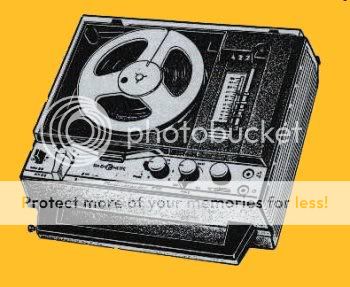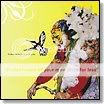The Electric Light is Pure Sex
'The Electric Light is Pure Information'

There is a Mcluhan aphorism in 'Understanding Media' that I never quite grasped. I've read the book enough times to be comfortable navigating Marshall's hyperbolic one-liners, but I never quite got the meaning behind this phrase. First of all, what is "pure information"? That seems a bit specious to me. Can information be pure? Can there be incomplete information? And-if information is defined as a difference; is information without context, without juxtapositions to rub up against even really information? The term 'pure information' signifies a mythology behind the term; that it is seen as tactile, gradient, and can be potentialized to communicate faster, more expediently. Like crack.
What Mcluhan was trying to say is that the electric light compresses form and content, that boring binary of early communication theory. The light communicates both with its form and its function. When we look at the electric light, it tells us only of itself, it gives us the message of its presence. The existence of light is being communicated. This does not occur with neon lights, billboards or advertisements. These all communicate a meaning external to itself. The electric light, says Mcluhan, is both medium and message.

(Lightbulbs in coitus)
Here is the thing: I really do associate light with information. Light delivers information in many different ways. Light is revelation, it is the destruction of ignorance. Lucifer was the lightbringer, a direct medium for knowledge, illumination. Prometheus hoisted fire from the gods, hijacked information and delivered it to the secular throngs. Here light is cast upon the external environment, changing the appearance of the environment and therefore the subject. It seems like this light is always earned, or stolen, or accumulated. Then there is the other transference of light, my favorite form of light-the revelation. There is St.Paul on the road to Damascus, suddenly blinded by a flash of light. Time dissolves: Paul is engulfed in a symbolic matrix of images beamed from the future. Because Paul can not interpret this wild, nightmarish future with the context he has available to him, it becomes a symbolic matrix of lights and sounds relevant to anyone who lived 2,000 years ago. Demons, angels, beasts, horns, each multiple, each mirrored, each with an effect and a form their own. Paul's revelation is sudden, jolting. He does not,(and this may be the key term) earn it. Worse, he has no choice but to embrace it. The light reveals his new life to him, his new identity. He is even forced to change his name.

Lacking any imagination, the Biblical god deems that Paul's new name is..Saul. Should God bombard me with the nature of himself and the eventual destruction of the universe, I pray that he would not rename me Poshan.
Philip K.Dick notes an even more disturbing relationship with light. The 'pink light' that he believes is beaming information into him in his quasi-autobiographical novel VALIS is not only unwelcome, it is driving him mad. The moment it shimmers off of the gnostic 'Jesus fish' pendant of a woman at his doorstep, he recognizes the light as the source of his pain, as the external force beaming pure information into his brain. Like St.Paul, it collapses time: among the more heartbreaking descriptions in the book is Dick's belief that he is simultaneously living in the year 300AD as well as the present, that the two timeframes are overlapping and interwoven. Dick's sanity and health are hindered by the light, and it's the most he can do to rummage through theological tracts and philosophy books, looking for mythological and philosophical metaphors to evaluate his condition, centering mostly on the
Nag Hammadi documents Dick's biography is one that I identify with more than most. There is something remarkably heartbreaking and heartwarming about a man who struggled, forced himself in and out of ontological tunnels, challenged himself, studied extensively, just to figure out what was going on in his head and his universe. This is a kind of intellectual dedication that turns thinkers into Thinkers. If he wasn't so obsessed with his own brain, Dick would be one of the more important intellectuals of the 20th century. The light was his curse, but in the end, he earned the relationship he developed with it.
The only co-dependent, co-operative revelation I can think of right now is also one of the most splendid and beautiful: it is the revelation by Krsna in the Bhagavad Gita that he is in fact Brahma, the God of Gods. He is the ur-god, a multiplicity. Arjuna, engaged in humble human communication with his embodied avatar, now sees the single form of Krsna as a refractive, crystallic representation of infinity. Like the hermetic axiom, the microcosm reflecting the macrocosm, Krsna becomes the one that encompasses the all. Sanjaya, our humble narrator, delivers one of my favorite lines:
"If the light of a thousand suns suddenly arose in the sky, that splendour might be compared to the radiance of the Supreme Spirit"

(wheeeeeee!)
It is no wonder that the metaphors of the Gita are used to describe nuclear fission. It's no wonder that that oft-quoted Robert Oppenheimer line, "I am become death, destroyer of worlds" is seen as so relevant. The total synaptic inundation, the flow of eternal contradictions bleeding into one another, the endless stream of visions and lights seem particularly suited to the 20th century. It's surprising that F.T. Marinetti was not quoting from the Gita, or that he declare Italy's new religion to be a new techno-Hinduism, rather than the boring scientific rationalism he sides with.
Arjuna, kneeling, humbly accepts these visions. Arjuna realizes that his friend and ally is the ur-god, the singular object of all devotion. It is light, it is information, but it is information that irrevocably re-draws the subject and its environment, until the two are inescapably intertwined.
In a way, Arjuna's revelation is cumulative, it is the end result of studying, learning, and interrogation. He is not knocked blind on the road to Damascus. He earns his information, and it changes everything he knows about how the universe works.
I would like to think that everyone in their life on some level wants to have one of these revelations. In a burst of light, in a flash of sound, through switchboards or altars, through laptops and crucifix, through telephone wires and the line of the mosque walls, through an infinite expanse of libraries, Alexandrian and Borgesian. The shock that wakes us from our dreaming. The explanation of the exterior world. The death of all we knew. To wake up, with something more, with something gracious, with an understanding and relationship between ourselves and the functions of our universe that eclipse our previous ones. Transcendence, transgression, ego dissolution, myriad, maddening, magic, magic, magick.















